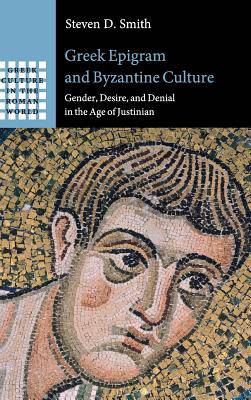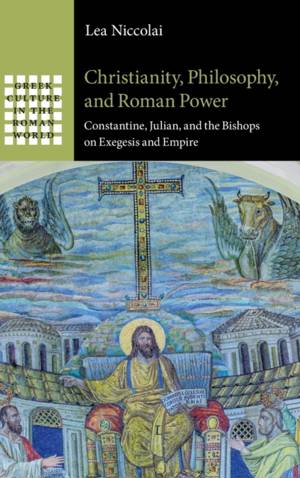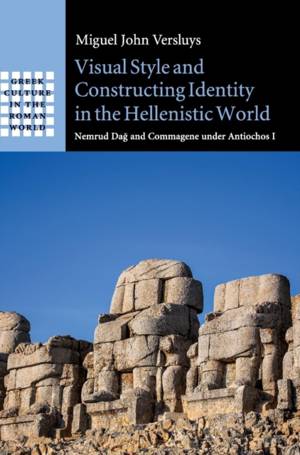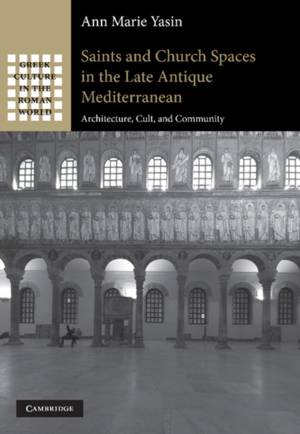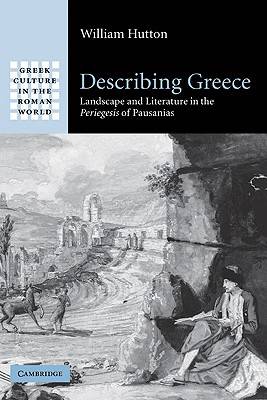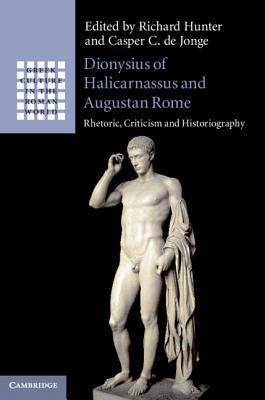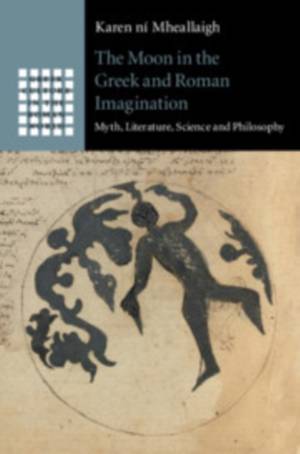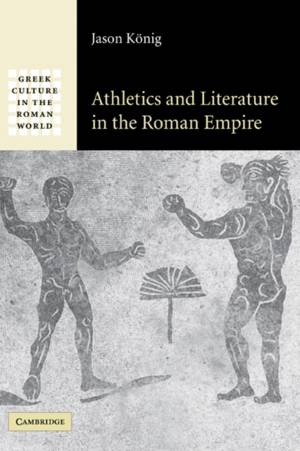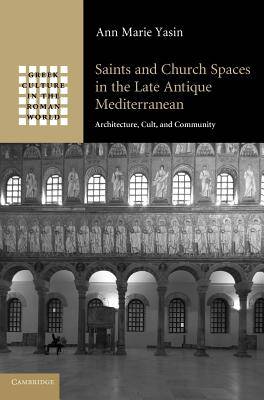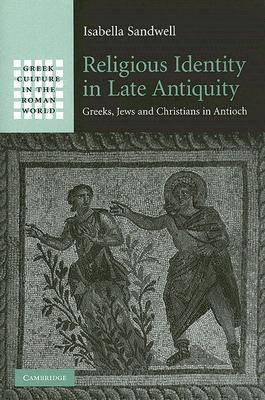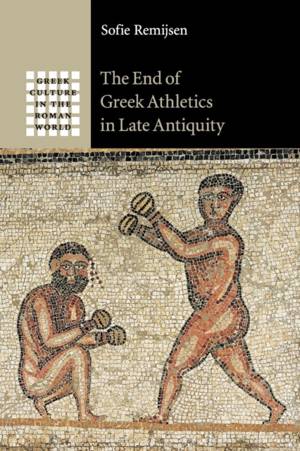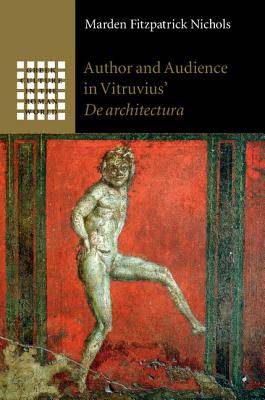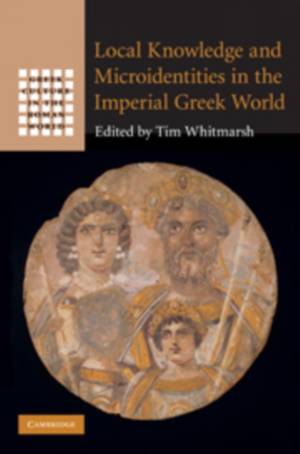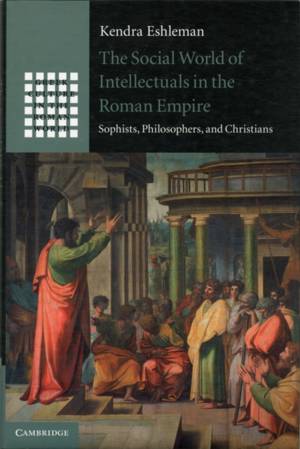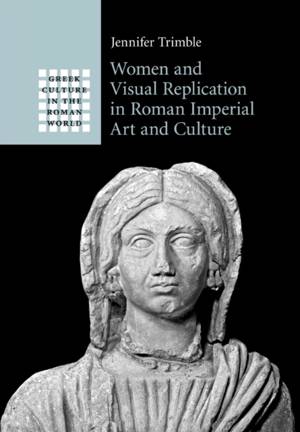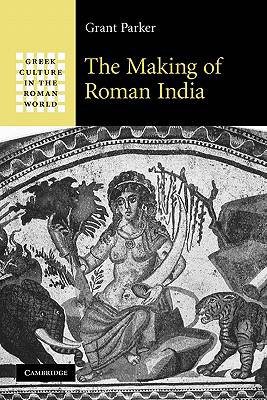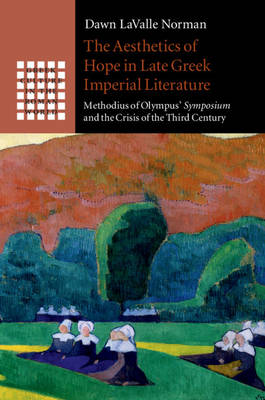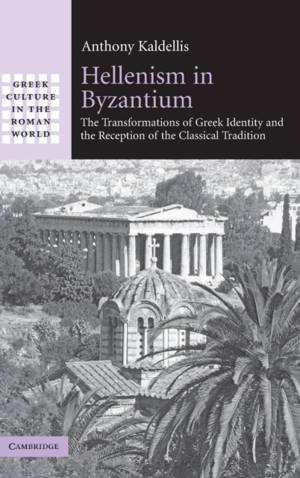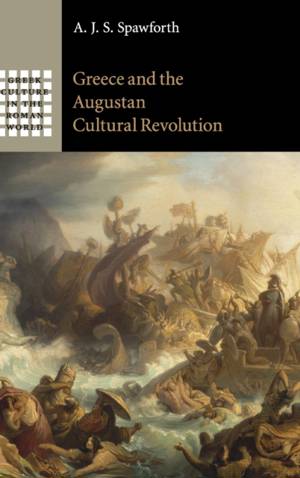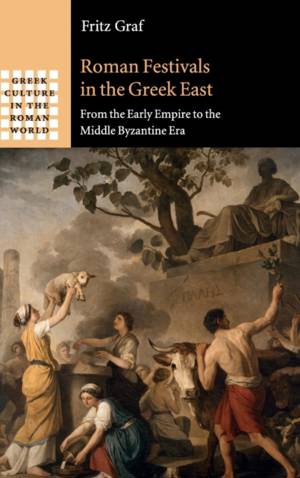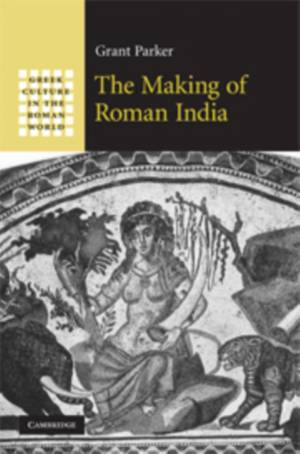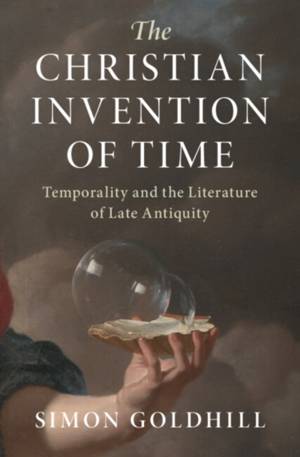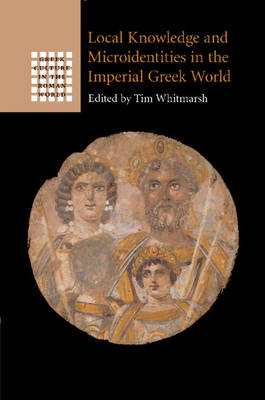
- Retrait gratuit dans votre magasin Club
- 7.000.000 titres dans notre catalogue
- Payer en toute sécurité
- Toujours un magasin près de chez vous
- Retrait gratuit dans votre magasin Club
- 7.000.0000 titres dans notre catalogue
- Payer en toute sécurité
- Toujours un magasin près de chez vous
Résultats pour "Greek Culture in the Roman World"
-
Greek Epigram and Byzantine Culture
Steven D Smith
- Livre relié | Anglais | Greek Culture in the Roman World
- Sexy, scintillating, and sometimes scandalous, Greek epigrams from the age of the Emperor Justinian commemorate the survival of the sensual in a world... Savoir plus
125,95 €Livraison sous 1 à 4 semaines125,95 €Livraison sous 1 à 4 semaines -
Christianity, Philosophy, and Roman Power
Lea Niccolai
- Livre relié | Anglais | Greek Culture in the Roman World
- This book rethinks the Christianisation of the late Roman empire as a crisis of knowledge, pointing to competitive cultural re-assessment as a major d... Savoir plus
139,95 €Livraison 1 à 2 semaines139,95 €Livraison 1 à 2 semaines -
Visual Style and Constructing Identity in the Hellenistic World
Miguel John Versluys
- Livre relié | Anglais | Greek Culture in the Roman World
- Located in the small kingdom of Commagene at the upper Euphrates, the late Hellenistic monument of Nemrud Dağ (c.50 BC) has been undeservedly neglecte... Savoir plus
172,95 €Livraison 2 à 3 semaines172,95 €Livraison 2 à 3 semaines -
Saints and Church Spaces in the Late Antique Mediterranean
Ann Marie Yasin
- Livre broché | Anglais | Greek Culture in the Roman World
- This book explores the intersection between two key developments of the fourth through seventh centuries CE: the construction of monumental churches a... Savoir plus
67,95 €Livraison 2 à 3 semaines67,95 €Livraison 2 à 3 semaines -
Women and Visual Replication in Roman Imperial Art and Culture
Jennifer Trimble
- Livre relié | Anglais | Greek Culture in the Roman World
- Why did Roman portrait statues, famed for their individuality, repeatedly employ the same body forms? The complex issue of the Roman copying of Greek ... Savoir plus
223,45 €Livraison 2 à 3 semaines223,45 €Livraison 2 à 3 semaines -
Describing Greece
William Hutton
- Livre relié | Anglais | Greek Culture in the Roman World
- William Hutton provides the first exhaustive literary study of the Periegesis Hellados, the most important example of non-fictional travel literature ... Savoir plus
220,95 €Livraison 2 à 3 semaines220,95 €Livraison 2 à 3 semaines -
Dionysius of Halicarnassus and Augustan Rome
- Livre relié | Anglais | Greek Culture in the Roman World
- The Greek author Dionysius of Halicarnassus came to Rome in 30/29 BC. He learnt Latin, developed a network of students, patrons and colleagues, and st... Savoir plus
172,95 €Livraison 2 à 3 semaines172,95 €Livraison 2 à 3 semaines -
The Moon in the Greek and Roman Imagination
Karen Ní Mheallaigh
- Livre relié | Anglais | Greek Culture in the Roman World
- The Moon exerted a powerful influence on ancient intellectual history, as a playground for the scientific imagination. This book explores the history ... Savoir plus
148,45 €Livraison 2 à 3 semaines148,45 €Livraison 2 à 3 semaines -
Athletics and Literature in the Roman Empire
Jason Konig
- Livre relié | Anglais | Greek Culture in the Roman World
- Greek athletics flourished more in the Roman empire than ever before. Jason König offers an exciting new cultural history of the athletics of this per... Savoir plus
230,95 €Livraison 2 à 3 semaines230,95 €Livraison 2 à 3 semaines -
Saints and Church Spaces in the Late Antique Mediterranean
Ann Marie Yasin
- Livre relié | Anglais | Greek Culture in the Roman World
- This book explores the intersection between two key developments of the fourth through seventh centuries CE: the construction of monumental churches a... Savoir plus
194,95 €Livraison 2 à 3 semaines194,95 €Livraison 2 à 3 semaines -
Religious Identity in Late Antiquity
Isabella Sandwell
- Livre relié | Anglais | Greek Culture in the Roman World
- Studies of religious interaction in the fourth century AD have often assumed that the categories of 'pagan', 'Christian' and 'Jew' can be straightforw... Savoir plus
198,95 €Livraison 2 à 3 semaines198,95 €Livraison 2 à 3 semaines -
The End of Greek Athletics in Late Antiquity
Sofie Remijsen
- Livre broché | Anglais | Greek Culture in the Roman World
- This book presents the first comprehensive study of how and why athletic contests, a characteristic aspect of Greek culture for over a millennium, dis... Savoir plus
67,95 €Livraison 2 à 3 semaines67,95 €Livraison 2 à 3 semaines -
Author and Audience in Vitruvius' De architectura
Marden Fitzpatrick Nichols
- Livre relié | Anglais | Greek Culture in the Roman World
- Vitruvius' De architectura is the only extant classical text on architecture, and its impact on Renaissance masters including Leonardo da Vinci is wel... Savoir plus
110,45 €Livraison 1 à 2 semaines110,45 €Livraison 1 à 2 semaines -
Local Knowledge and Microidentities in the Imperial Greek World
- Livre relié | Anglais | Greek Culture in the Roman World
- This volume explores the proposition that the absorption of the Greek world into the Roman empire created a new emphasis upon local identities, much a... Savoir plus
172,95 €Livraison 2 à 3 semaines172,95 €Livraison 2 à 3 semaines -
The Social World of Intellectuals in the Roman Empire
Kendra Eshleman
- Livre relié | Anglais | Greek Culture in the Roman World
- This book examines the role of social networks in the formation of identity among sophists, philosophers and Christians in the early Roman Empire. Mem... Savoir plus
177,45 €Livraison 2 à 3 semaines177,45 €Livraison 2 à 3 semaines -
Women and Visual Replication in Roman Imperial Art and Culture
Jennifer Trimble
- Livre broché | Anglais | Greek Culture in the Roman World
- Why did Roman portrait statues, famed for their individuality, repeatedly employ the same body forms? The complex issue of the Roman copying of Greek ... Savoir plus
74,95 €Livraison 2 à 3 semaines74,95 €Livraison 2 à 3 semaines -
The Making of Roman India
Grant Parker, Parker
- Livre broché | Anglais | Greek Culture in the Roman World
- Latin and especially Greek texts of the imperial period contain a wealth of references to 'India'. Professor Parker offers a survey of such texts, rea... Savoir plus
90,95 €Livraison 2 à 3 semaines90,95 €Livraison 2 à 3 semaines -
The Aesthetics of Hope in Late Greek Imperial Literature
Dawn Lavalle Norman
- Livre relié | Anglais | Greek Culture in the Roman World
- This book sheds light on a relatively dark period of literary history, the late third century CE, a period that falls between the Second Sophistic and... Savoir plus
125,95 €Livraison 1 à 2 semaines125,95 €Livraison 1 à 2 semaines -
Hellenism in Byzantium
Anthony Kaldellis
- Livre relié | Anglais | Greek Culture in the Roman World
- This text was the first systematic study of what it meant to be 'Greek' in late antiquity and Byzantium, an identity that could alternatively become n... Savoir plus
223,45 €Livraison 2 à 3 semaines223,45 €Livraison 2 à 3 semaines -
Greece and the Augustan Cultural Revolution
A J S Spawforth
- Livre relié | Anglais | Greek Culture in the Roman World
- This book examines the impact of the Roman cultural revolution under Augustus on the Roman province of Greece. It argues that the transformation of Ro... Savoir plus
172,95 €Livraison 2 à 3 semaines172,95 €Livraison 2 à 3 semaines -
Roman Festivals in the Greek East
Fritz Graf
- Livre relié | Anglais | Greek Culture in the Roman World
- This study explores the development of ancient festival culture in the Greek East of the Roman Empire, paying particular attention to the fundamental ... Savoir plus
187,45 €Livraison 2 à 3 semaines187,45 €Livraison 2 à 3 semaines -
The Making of Roman India
Grant Parker
- Livre relié | Anglais | Greek Culture in the Roman World
- Latin and especially Greek texts of the imperial period contain a wealth of references to 'India'. Professor Parker offers a survey of such texts, rea... Savoir plus
198,95 €Livraison 2 à 3 semaines198,95 €Livraison 2 à 3 semaines -
The Christian Invention of Time
Simon Goldhill
- Livre relié | Anglais | Greek Culture in the Roman World
- Time is integral to human culture. Over the last two centuries people's relationship with time has been transformed through industrialisation, trade a... Savoir plus
72,45 €Livraison 2 à 3 semaines72,45 €Livraison 2 à 3 semaines -
Local Knowledge and Microidentities in the Imperial Greek World
- Livre broché | Anglais | Greek Culture in the Roman World
- This volume explores the proposition that the absorption of the Greek world into the Roman empire created a new emphasis upon local identities, much a... Savoir plus
60,95 €Livraison 2 à 3 semaines60,95 €Livraison 2 à 3 semaines





